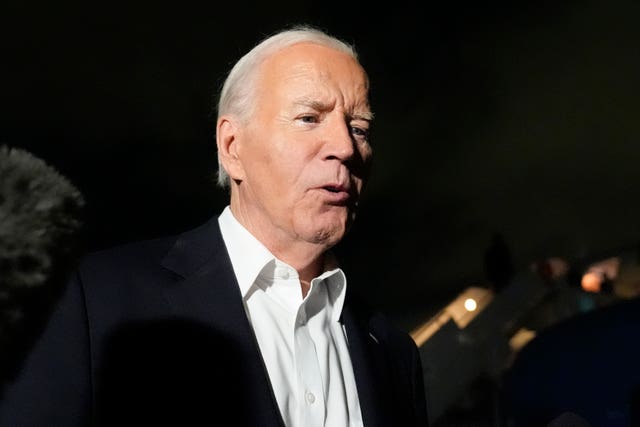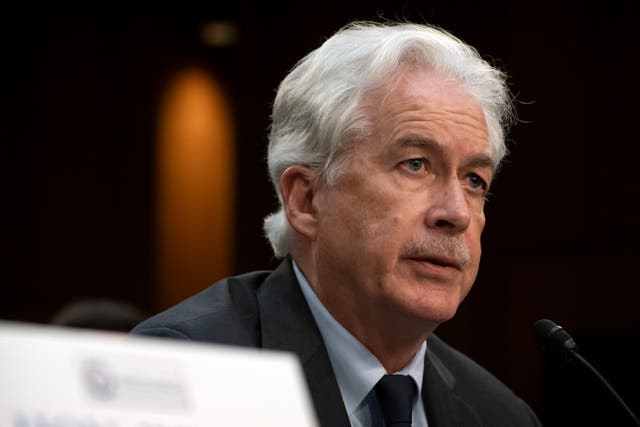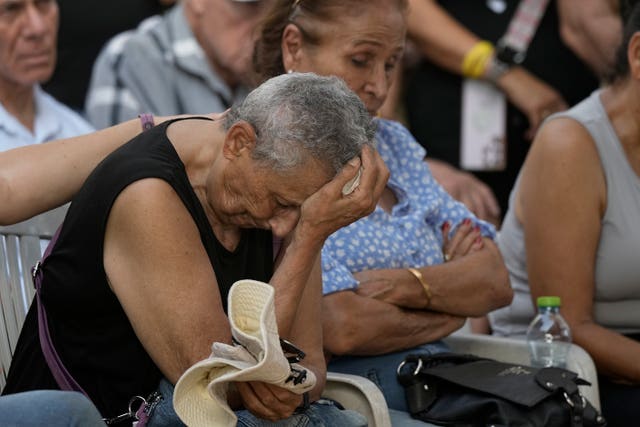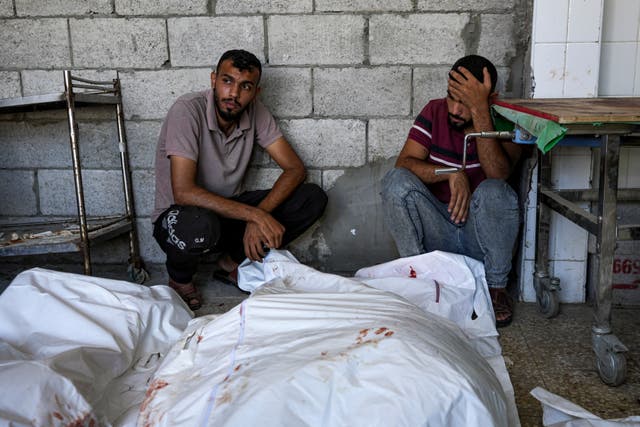US says ceasefire talks in Cairo have been constructive with ‘progress made’
Diplomatic efforts for a ceasefire have redoubled as fears grow of a wider regional war in the Middle East.

The White House said that ceasefire talks in Cairo have been constructive and will continue over the weekend as the US and Mideast allies continue to press Israel and Hamas to forge an agreement.
CIA director William Burns and Brett McGurk, a senior adviser on the Middle East to President Joe Biden, are leading the US side of negotiations that began on Thursday amid major differences between Israel and Hamas over Israel’s insistence that it maintain forces in two strategic corridors in Gaza.
“There has been progress made,” White House national security spokesman John Kirby said, “We need now for both sides to come together and work towards implementation.”

Mr Biden took a break from his family holiday in Santa Ynez Valley, California, on Friday to call Qatar’s emir, Sheikh Tamim bin Hamad Al Thani, and Egyptian President Abdel Fattah el-Sisi to discuss the negotiations.
Diplomatic efforts have redoubled as fears grow of a wider regional war after the recent targeted killings of leaders of the militant Hamas and Hezbollah groups, both blamed on Israel, and threats of retaliation.
Israel and Hamas have been at loggerheads over the Philadelphi corridor alongside Gaza’s border with Egypt and the Netzarim east-west corridor across the territory.
Hamas is demanding a complete withdrawal of Israeli forces from Gaza.
Mr Netanyahu insists on the principle that Israel will control the Philadelphi corridor, with the aim of preventing the rearming of Hamas and a repeat of the atrocities of the October 7 attack on Israel. He also denied reports that Israel would be willing to accept an international force in the corridor.
Hamas on Friday pushed back that Mr Netanyahu was “blocking any chance to reach a ceasefire deal”.

“We’re in Cairo. They’re in Cairo,” Mr Kirby said. “We need Hamas to participate. We need to get down to the brass tacks of locking in these details. And that’s what we’re focused on here.”
Mr Biden last week said he was “optimistic” that an agreement could be reached after he spoke by phone with the Egyptian president and Qatar’s emir.
That conversation came after a round of negotiations in Doha that White House officials said showed promise that a deal was close.
But by Tuesday, Mr Biden was notably more muted about the prospects of the two sides coming to an agreement soon. He told reporters after delivering an address at the Democratic convention that “Hamas was now backing off,” but that the US is “going to keep pushing” to land a ceasefire deal.
Mr Biden in a Wednesday call with Mr Netanyahu “stressed the urgency of bringing the ceasefire and hostage release deal to closure”, according to the White House.

Meanwhile, the families of the Israeli hostages said they met with Mr Netanyahu on Friday “to understand what could still be more important than freeing their loved ones,” venting their anger at his failure to seal a cease-fire deal that would lead to their loved ones’ release from Hamas captivity.
Representatives from the Hostages Family Forum, a group representing relatives of hostages, said Mr Netanyahu reiterated his commitment to do everything in his power to bring their family members back alive.
More than 100 Israeli hostages remain in Gaza, including dozens who are presumed dead.
“The word ‘alive’ limits this to a certain time frame,” said Yizhar Lifshitz, son of hostage Oded Lifshitz, whose mother was kidnapped and freed by Hamas last October.

Ella Ben Ami, daughter of hostage Israeli Ohad Ben Ami, said she left her meeting with Mr Netanyahu “with a heavy and difficult feeling that this isn’t going to happen soon, and I fear for my father’s life, for the girls who are there, and for everyone.”





